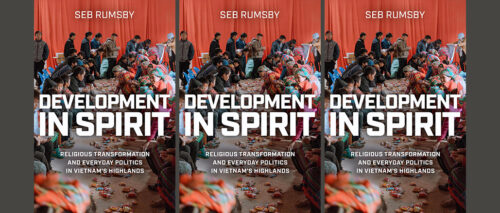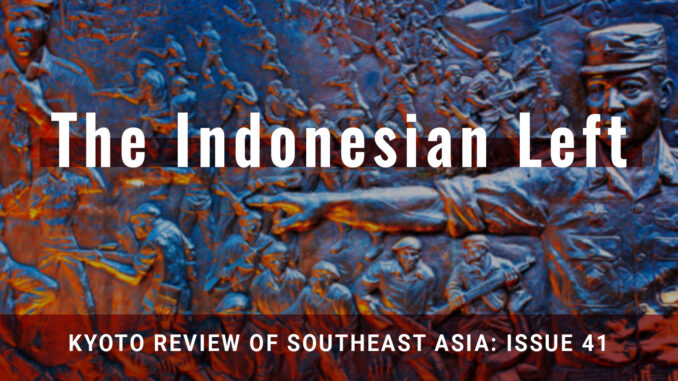
The Indonesian left has always been on the defensive when it comes to the production of history. Though it is commonplace to associate anticommunism most strongly with the 32 years of Suharto’s Orde Baru or the New Order Regime (1966-1998), such a deep-seated political view has long been presupposing the Indonesian state and society since the late colonial period. Anticommunism has manifested itself in different guises throughout the last century, from the Dutch counterinsurgent police (Shiraishi 2021) to the sanctioned maturation of the army during Soekarno’s Guided Democracy (Roosa 2020, Ch.1) and the manufactured fear of the rise of communism (kebangkitan PKI) in the contemporary Reformasi period (Estrelita 2024). Immediately after the suppression of the Prambanan Revolt in 1926/27, the Madiun Affairs in 1948, and the Genocide in 1965/66, leftist ideas were systemically exterminated alongside and along with dead revolutionary bodies (Lane 2009; Wahid and Novianto 2017). Imagine how much more we would have learned about Indonesian peoples’ history if Pramoedya Ananta Toer’s treasured library had not been raided (Farid 2014) or about the land reform resolutions if the peasants’ front Barisan Tani Indonesia were to continue their field research (Leksana 2024). The emergent scholarship about knowledge production written by Indonesian scholars details the intricate terrains of state censorship and silenced archives with which the surviving left tarry to make their history (Theo 2021; Hanafi 2022; Madasari 2023).
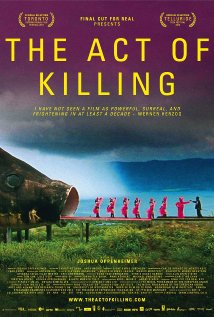
The anticommunist underpinnings, which do not aim just to obstruct but eradicate leftist historical production, have never succeeded in stopping the process altogether. Beginning from the end of Suharto’s presidency, we have witnessed multiple movements of what historian Asvi Warman Adam (2009) calls “historical rectification” (pelurusan sejarah) that debunk the New Order’s fabulations and recuperate leftist perspectives. Important milestones include the Indonesian Institute of Social History (ISSI)’s oral history project in the early 2000s (Roosa, Ratih, and Farid 2004), the release of Joshua Oppenheimer’s documentary The Act of Killing or Jagal (2012) in the early 2010s, the International People’s Tribunal of 1965 stewarded by Saskia Wieringa in the mid-2010s (IPT 2016), and the campaigns against forgetting (gerak ingatan) in the 2020s (Leksana 2023). Though never enough to restitute justice to the victims, hundreds of documents have been generated, new records uncovered, and archival materials declassified as a result of such dedicated activism. While the archival silence constrained early-Reformasi historical scholarship to the leftist critique of Orde Baru’s historiography (Curaming 2003; McGregor 2007; Karsono 2013), researchers in the last ten years—most notably Jess Melvin’s (2018) discovery of the Indonesian genocide files in Banda Aceh—have been blessed with voluminous publications and more open access to collections that were impossible to imagine two decades ago. The change in material conditions has shifted the scholarly direction from deconstructive critique to critical reconstruction.
Not losing sight of combatting disinformation about the left, scholar-activists have begun to harness these novel research opportunities by challenging the earlier scholarship, using newly available sources to rework their claims, and recuperating alternative intellectual references. The five contributions in this special issue, “History with Documents: New Research on the Indonesian Left,” arguably follow this general tendency in offering fresh insights into the conventional knowledge of different periods in leftist history and historiography.[1] The essays are organized chronologically, spanning from colonial to contemporary periods and covering a diverse array of innovative inquiries in leftist research, including urban politics, political women, existentialist philosophy, the Malari incident, and the post-COVID labor movement.
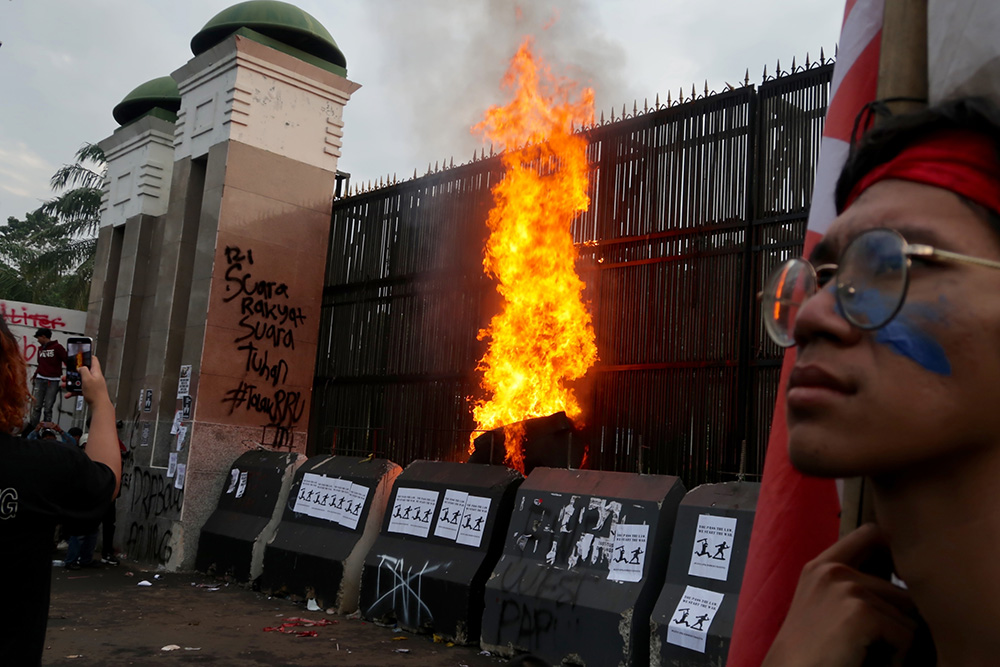
Andi Achdian shifts the level of analysis from the elite’s high-level decisions to the socialists’ quotidian negotiations in colonial Surabaya’s municipal council during the 1910s, whose intentions were to reconfigure the imperial machinery from within. Contrary to the study by Ruth McVey and Takashi Shiraishi on the early formation of the Indonesian Communist Party, which overlooks female communists, Rianne Subijanto unearths the praxes of these ordinary political women who identified as perempoean kromo (lower-class women) in the popular Red Movement of the 1920s. Through Marxist ideology critique, Windu Jusuf exposes existentialism’s bourgeois individual retreat from class struggle that led the critical-minded Indonesian socialists to comply with the New Order’s authoritarian developmentalism by the mid-1960s. Offering a historical-materialist reading of the 1974 student demonstration-turned-riot incident known as Malari, Sylvia Tiwon develops a notion of manufactured turbulence from Javanese female thinker Kartini to elucidate the military government’s diversion tactics that obscure the violent process of capitalist accumulation in Indonesia. Lastly, in examining the omnibus law on job creation, Intan Suwandi reveals the law’s insidious effects in heightening the exploitation of workers and illustrates an informed roadmap for bolstering the labor movement amidst the neoliberal assault.
It is important to highlight the Indonesian identity of all contributors, three among them female, who write courageously against the anticommunist terror. They are in good company with many other Indonesians who share the quest for truth, freedom, and justice for the left. Together, they may overturn the balance of force and cease to take a defensive position.
Thiti Jamkajornkeiat
Thiti Jamkajornkeiat is Assistant Professor of Global Southeast Asian Studies at the University of Victoria (Canada). He works on intellectual history and political theory at the intersection of Marxism, anticolonialism, and Southeast Asia, specifically Indonesia and Thailand. His first book project investigates left internationalism in Indonesia during the Bandung era through the intertwined circuits of third worldism and minor communism.
[1] The phrase “History with Documents” plays with the title of Omnia El Shakry’s (2015) essay “History without Documents” that reflects on the problematic specific to the archives of decolonization.

Main Articles in eight languages
Article 1 by Andi Achdian
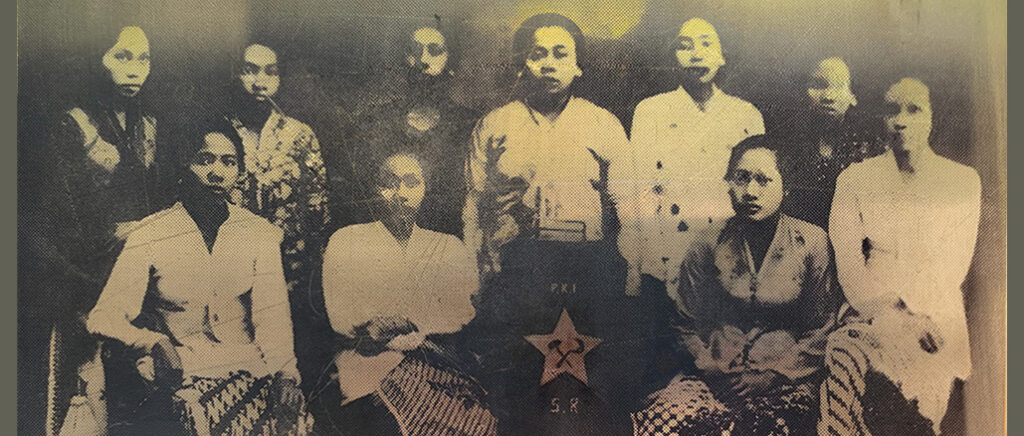
Reclaiming the City: Revisiting the Urban Politics of the Indonesian Left
Merebut Kembali Kota: Meninjau Ulang Politik Perkotaan Kaum Kiri Indonesia
ทวงคืนเมือง: ย้อนเวลาพินิจการเมืองท้องถิ่นของฝ่ายซ้ายอินโดนีเซีย
都市を取り戻す:インドネシア左派の都市政治を振り返る
Tái thiết thành phố: Xem xét lại chính trị đô thị của cánh tả Indonesia
Pagbawi sa Lungsod: Balik-tanaw sa Politikang Panlungsod ng Kilusang Kaliwa sa Indonesia
မြို့ပြကို ပြန်လည်သိမ်းပိုက်ခြင်း — အင်ဒိုနီးရှားလက်ဝဲ၏ မြို့ပြနိုင်ငံရေးကို ပြန်လည်ဆန်းစစ်ခြင်း
ការទាមទារទីក្រុងមកវិញ៖ ការពិនិត្យមើលឡើងវិញទៅលើកិច្ចការនយោបាយទីក្រុងរបស់ក្រុមឆ្វេងឥណ្ឌូនេស៊ី
Article 2 by Rianne Subijanto
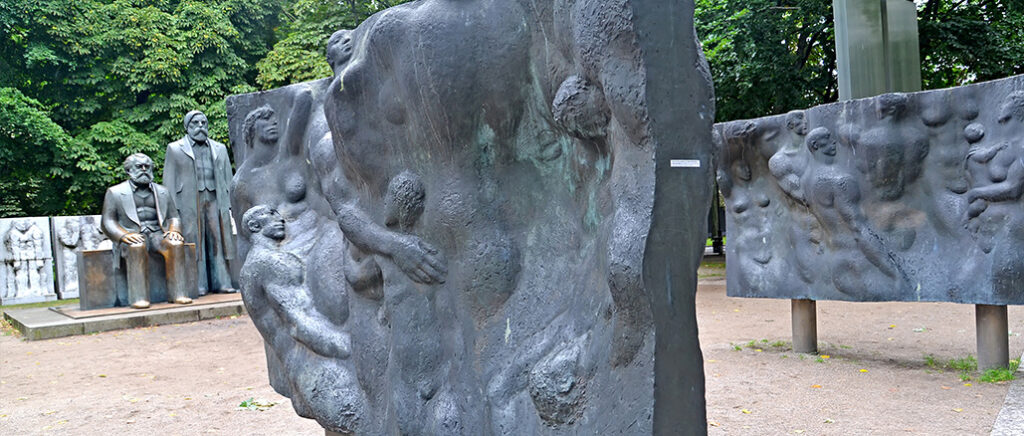
When Women Lead: ‘Perempoean Kromo’ in the Red Movement
Ketika Perempuan Memimpin: Perempoean Kromo dalam Pergerakan Merah
เมื่อผู้หญิงเป็นผู้นำ: Perempoean Kromo ในขบวนการแดง
女性が主導権を握る時:共産主義運動におけるPerempoean Kromo(一般市民女性)
Khi phụ nữ lãnh đạo: Perempoean Kromo trong phong trào đỏ
Kapag Namuno ang Kababaihan: Ang ‘Perempoean Kromo’ sa Kilusang Komunista
အမျိုးသမီးများဦးဆောင်သောအခါ – အနီရောင်လှုပ်ရှားမှုအတွင်း Perempoean Kromo
នៅពេលដែលស្ត្រីដឹកនាំ៖ Perempoean Kromo នៅក្នុងចលនាក្រហម
Article 3 by Windu Jusuf
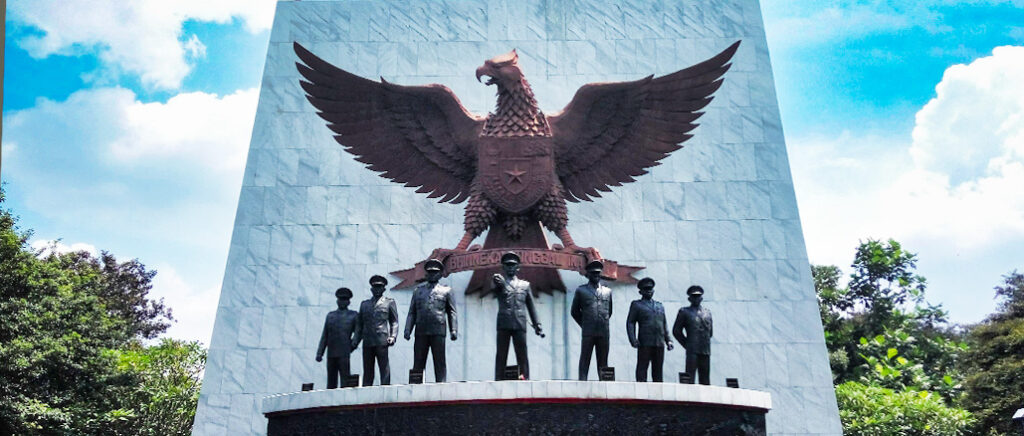
Between Sartre and Suharto: The Misadventures of Existentialism in Indonesia
Antara Sartre dan Soeharto: Petualangan Kelam Eksistensialisme di Indonesia
ระหว่างซาตร์กับซูฮาร์โต: ผลร้ายโดยไม่เจตนาของปรัชญาอัตถิภาวนิยมในอินโดนีเซีย
サルトルとスハルトの間:インドネシアにおける実存主義の失敗
Giữa Sartre và Suharto: Những cuộc phiêu lưu của chủ nghĩa hiện sinh ở Indonesia
Sa pagitan nina Sartre at Suharto: Ang mga Kasawian ng Existensiyalismo sa Indonesia
ဆာတ်နှင့် ဆူဟာတိုအကြား – အင်ဒိုနီးရှားရှိ ဖြစ်တည်မှုပဓာနဝါဒ (existentialism) ၏ လမ်းကြောင်းလွဲသည့် စွန့်စားမှုများ
រវាង Sartre និង Suharto: គ្រោះថ្នាក់នៃអត្ថិភាពនិយមនៅក្នុងប្រទេសឥណ្ឌូនេស៊ី
Article 4 by Sylvia Tiwon
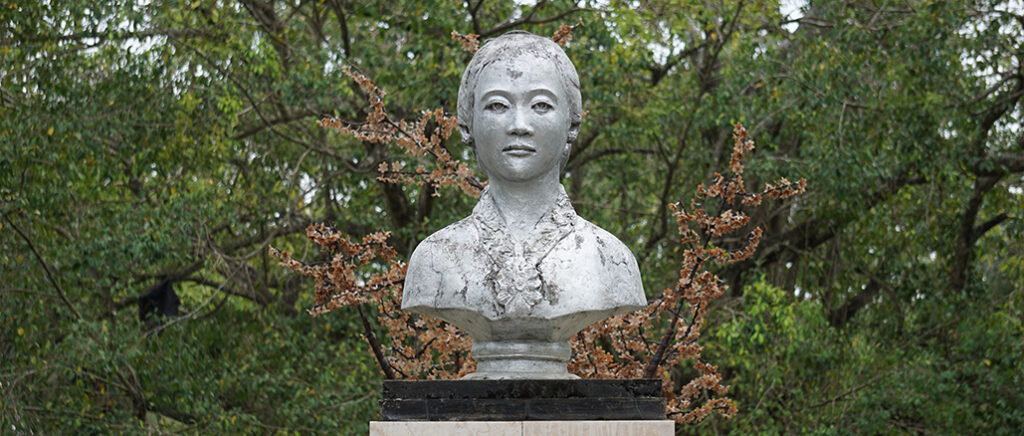
Conjunctures of Turbulence: Reflections on the 15th January Incident (Malari)
Rangkaian Pergolakan: Renungan atas Malapetaka 15 Januari (Malari)
เหตุบรรจบของความปั่นป่วน: สะท้อนย้อนคิดถึงเหตุการณ์ 15 มกราคม (มาลารี)
絡み合う騒乱:1月15日(マラリ)事件の再考
Những sự kiện hỗn loạn: Suy ngẫm về sự kiện ngày 15 tháng 1 (Malari)
Mga Hugpungan ng Ligalig: Pagninilay sa Pangyayari noong ika-15 ng Enero (Malari)
မငြိမ်မသက်ဖြစ်စဉ်များ၏ မှန်းဆချက် ၁၅ ဇန်နဝါရီ မာလာရီဖြစ်စဉ်အပေါ် အတွေးအခေါ်များ
ទេសកាលនៃស្ថានភាពចលាចល៖ ការឆ្លុះបញ្ចាំងទៅលើព្រឹត្តិការណ៍ថ្ងៃទី ១៥ ខែមករា (Malari)
Article 5 by Intan Suwandi
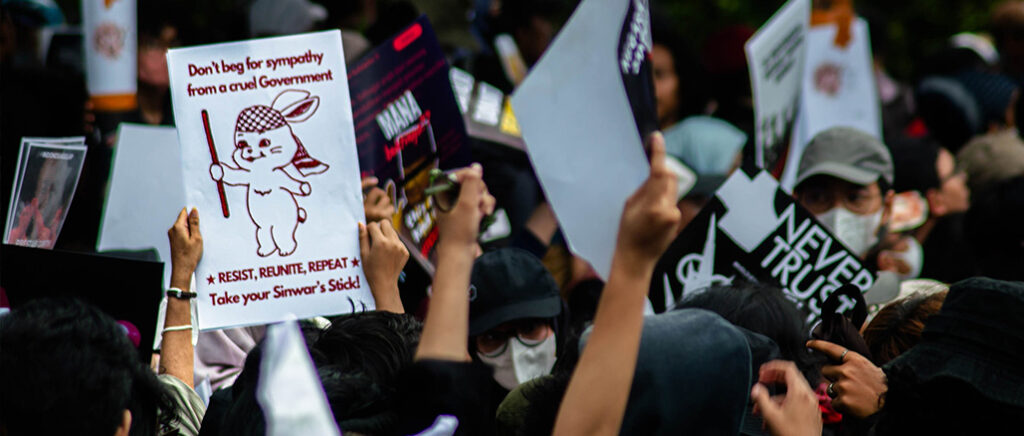
Fighting Back and Building Strength: Reflecting on Indonesia’s Labor Movement
Melawan Balik dan Membangun Kekuatan: Renungan atas Gerakan Buruh Indonesia
กลับและสะสมกำลัง: บทสะท้อนย้อนคิดว่าด้วยขบวนการแรงงานอินโดนีเซีย
抵抗して力を強化する インドネシア労働運動の再考
Chống trả và xây dựng sức mạnh: Suy ngẫm về phong trào lao động của Indonesia
Paglaban at Pagbuo ng Lakas: Pagninilay sa Kilusang Paggawa ng Indonesia
တုံ့ပြန်တိုက်ခိုက်ခြင်းနှင့် အင်အား တည်ဆောက်ခြင်း — အင်ဒိုနီးရှား အလုပ်သမားလှုပ်ရှားမှုကို ပြန်လည်စဉ်းစားခြင်း
ការវាយបក និងការកសាងកម្លាំង៖ ការឆ្លុះបញ្ចាំងទៅលើចលនាកម្មករឥណ្ឌូណេស៊ី
Book reviews: Issue 41, (September 2025)
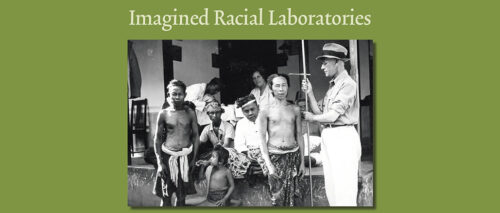 Imagined Racial Laboratories: Colonial and National Racialisations in Southeast Asia Imagined Racial Laboratories: Colonial and National Racialisations in Southeast AsiaAuthors: Ricardo Roque and Warwick Anderson (eds.) Leiden: Brill, 2023 Reviewed by Mesrob Vartavarian |
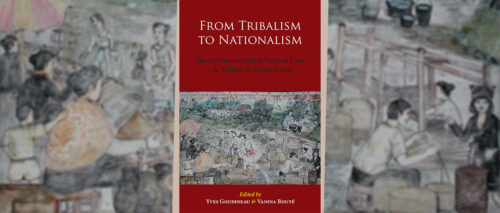 From Tribalism to Nationalism: The Anthropological Turn in Laos – A Tribute to Grant Evans From Tribalism to Nationalism: The Anthropological Turn in Laos – A Tribute to Grant EvansAuthors: Yves Goudineau and Vanina Bouté (eds.) NIAS Press, 2022 Reviewed by Simon Rowedder |
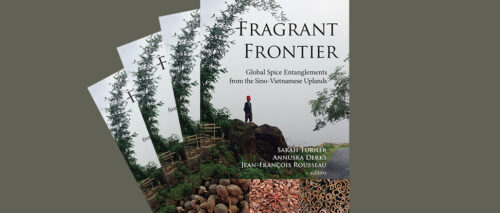 Fragrant Frontier: Global Spice Entanglements from the Sino-Vietnamese Uplands Fragrant Frontier: Global Spice Entanglements from the Sino-Vietnamese UplandsAuthors: Sarah Turner, Annuska Derks, and Jean-François Rousseau (eds.) Copenhagen: Nordic Institute of Asian Studies, 2022 Reviewed by Liam C. Kelley |
 Electoral Reform and Democracy in Malaysia Electoral Reform and Democracy in MalaysiaAuthors: Helen Ting M. H. and Donald L. Horowitz (eds.) NIAS Press, 2023 Reviewed by Hai Hong Nguyen |
|
|
References –
Adam, Asvi Warman. 2009. Pelurusan sejarah Indonesia [Straightening Out Indonesian History]. Yogyakarta: Ombak.
Curaming, Rommel A. 2003. “When Clio Meets the Titans: Rethinking State-Historian Relations in Indonesia and the Philippines,” Ph.D. Dissertation. Australian National University.
El Shakry, Omnia, 2015. “‘History without Documents’: The Vexed Archives of Decolonization in the Middle East,” The American Historical Review 120, 3 (Jun.): 920-34.
Estrelita, Gloria Truly. 2024. “Beyond Leftist-Phobia: Political Prejudice and Stigma in Indonesia,” in The Palgrave Handbook of Political Norms in Southeast Asia. eds. Gabriel Facal, Elsa Lafaye de Micheaux, Astrid Norén-Nilsson. Singapore: Palgrave Macmillan, 247-58.
Farid, Hilmar. 2014. “Rewriting the Nation: Pramoedya Ananta Toer and the Politics of Decolonization,” Ph.D. Dissertation. National University of Singapore.
Hanafi, Taufiq. 2022. “Writing Novels under the New Order: State Censorship, Complicity, and Literary Production in Indonesia, 1977-1986,” Ph.D. Dissertation. Leiden University.
IPT 1965. 2016. Final Report. Bandung: Ultimus.
Karsono, Sony. 2013. “Indonesia’s New Order, 1966-1998: Its Social and Intellectual Origins,” Ph.D. Dissertation. Ohio University.
Lane, Maxwell Ronald. 2009. “Mass Mobilisation in Indonesian Politics, 1960-2001: Towards a Class Analysis,” Ph.D. Dissertation. University of Wollongong.
Leksana, Grace. 2023. Embedded Remembering: Memory Culture of the Anti-Leftist Violence in Indonesia. Amsterdam: Amsterdam University Press.
Leksana, Grace. 2024. “When Science Meets Practice: Knowledge Production and the Indonesian Leftist Scientists in Times of Decolonization,” Lecture. Leiden University, December 13.
Madasari, Okky. 2023. “The Creation of An Imposter Nation: A Study of Silencing, Censorship, and Knowledge Production in Contemporary Indonesia,” Ph.D. Dissertation. National University of Singapore.
McGregor, Katharine E. 2007. History in Uniform: Military Ideology and the Construction of Indonesia’s Past. Singapore: NUS Press.
Melvin, Jess. 2018. The Army and the Indonesian Genocide: Mechanics of Mass Murder. London and New York: Routledge.
Oppenheimer, Joshua (dir.). 2012. The Act of Killing. Denmark: Final Cut for Real ApS.
Roosa, John, 2020. Buried Histories: The Anticommunist Massacres of 1965-1966 in Indonesia. Madison: The University of Wisconsin Press.
Roosa, John, Ratih, Ayu, and Farid, Hilmar. 2004. Tahun yang tak pernah berakhir: memahami pengalaman korban’65: esai-esai sejarah lisan [The Year that Never Ended: Understanding the Experiences of the Victims of 1965: Oral History Essays]. Jakarta: Elsam.
Shiraishi, Takashi. 2021. The Phantom World of Digul: Policing as Politics in Colonial Indonesia, 1926-1941. Singapore: NUS Press and Kyoto University Press.
Theo, Rika. 2021. “The Djogdja Documenten Revisited: Reparation, Silence, and the Seized Archives of the Decolonization War,” Ph.D. Dissertation. University of Amsterdam.
Wahid, Abdul and Novianto, Arif. 2017. “Genosida Intelektual (Intellectualcide): Pemberangusan Ideologi dan Kaum Kiri di Kampus Indonesia Pasca September 1965” [Intellectual Genocide (Intellectualcide): The Eradication of Ideology and Leftists on Indonesian Campus after September 1965], MAP Corner Klub MKP UGM (24 Feb.).

